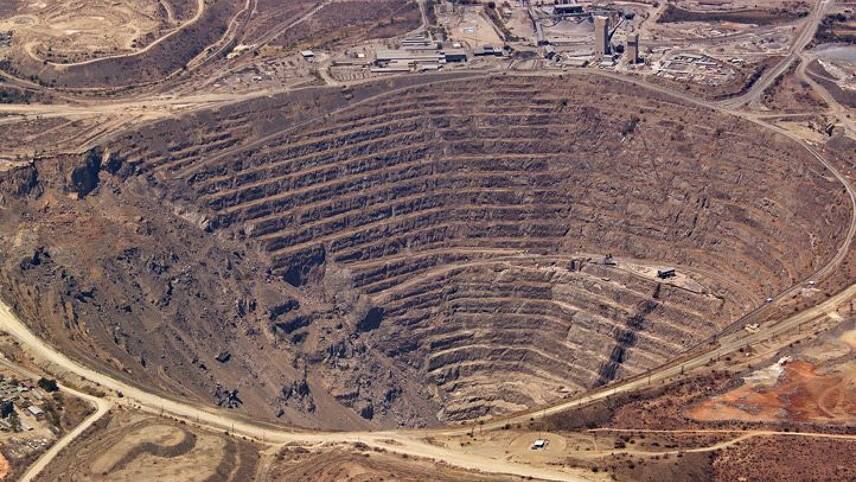Register for free and continue reading
Join our growing army of changemakers and get unlimited access to our premium content

One-planet compatibility is also a way to demonstrate companies’ comprehensive contribution to the Sustainable Development Goals (SDGs)
Monday 29 July 2019 marks Earth Overshoot Day, the date when humanity consumes more from nature than the planet can renew in a year. Earth Overshoot Day has moved from late September in 1997 to late July 22 years later. In fact, July 29 is the earliest that Earth Overshoot Day has ever been recorded – three days ahead of 2018’s August 1 Overshoot Day.
Stress on natural resources has been exacerbated by growing sustainability issues such as deforestation, soil erosion, biodiversity loss, fresh-water scarcity and the build-up of carbon emissions, researchers suggest. Humanity is now at a point where it consumes the resources of 1.7 Earths in a year – an inarguably unsustainable feat.
The Global Footprint Network (GFN), the research organisation tracking Earth Overshoot Day, predicts that Earth Overshoot Day will land halfway through the year – in June – by 2030, meaning it would require two entire Earths to sustain current consumption levels.
In response, the GFN has partnered with Schneider Electric to explore how businesses can become “one-planet compatibility”, which would act as a “strategic compass to gauge the sustainability value propositions of companies”.
The two companies have jointly published a new whitepaper outlining how businesses can move away from an ecological overshoot by improving resource efficiency and security across their operations and supply chains while also improving global well-being with the budget of the planet’s ecosystem.
“The business case for one-planet compatibility strategies is clear: expanding markets fuelled by increased customer expectations for transparency and traceability; reduced exposure to shrinking ecological resources with volatile flows and prices; optimized chances at securing long-term value of assets and financing,” the whitepaper states.
“Moving out of ecological overshoot calls for the kind of creativity, ingenuity, and drive that can only be unleashed through a new type of collaborative conversation between players. Technologies and know-hows are readily available to push the date of Earth Overshoot Day back towards December 31st and even beyond.”
Ecological overshoot
The whitepaper notes that the overshoot occurs from overuse of ecological assets, including overfishing, deforestation and water depletion, as well as accumulating waste and greenhouse gases.
Specifically, the whitepaper notes that infrastructure retrofits for buildings and the uptake of low-carbon assets such as electric vehicles (EVs) can help move the date of the overshoot back by at least three days. Elsewhere, a digital transformation across industries can push the date by two days, while decentralised, decarbonised and digital power can account for 15 days.
One-planet compatibility is also a way to demonstrate companies’ comprehensive contribution to the Sustainable Development Goals (SDGs), the report added.
The paper specifies that businesses should “answer growing consumer expectations for transparency and end-to-end traceability”, “protect operations from commodity price volatility and shortage risks”, “plan now to avoid future liabilities and stranded-assets”, and “secure financing, with investors who increasingly value transition risks and opportunities”.
The whitepaper also highlights the role that legislation can play in spurring progress. The UK’s net-zero target will likely lead to increased decarbonisation across industries. In France, a ban on food waste has seen 93% of supermarkets donated unwanted food surpluses, compared to 33% before legislation was set.
edie’s Earth Overshoot webinar
So, what exactly does that one-planet compatibility look like? How are businesses collaborating, innovating and actuating to achieve a circular economy for themselves and their sectors? And what are the real levers for change that can effectively decouple business growth from resource consumption – even in the most ecologically impactful sectors?
This one-hour webinar, hosted on Earth Overshoot Day 2019, taking place Monday 29 July at 2pm (BST) and hosted in association with Centrica Business Solutions, will hear from businesses that are radically reinventing their business models and decoupling growth from resource consumption to advance a circular economy and operate within the means of our planet.
—REGISTER FOR THE WEBINAR HERE—
Matt Mace


Please login or Register to leave a comment.